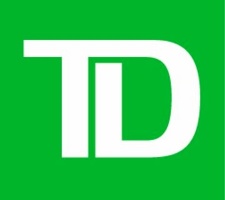@TDAM_Canada
Investor Knowledge + 5 Minutes = Current Insights
Commodities play an important role in portfolio construction, with the potential to offer inflation protection, portfolio diversification and positive expected returns over time. If you have decided now is the time to invest the next question you ask is how? Do you invest in a commodity-related equity? Or a commodity derivative? How are these different?
A commodity related equity is a company's stock in a sector (industry) that is related to commodities (oil companies such as Exxon Mobil Corp.). Commodity derivatives on the other hand are financial tools that allow an investor to invest in a commodity and make a profit without owning it. A commodity derivative gets its value from 'the underlying asset', meaning its value is based on the physical commodity. Today, many investors looking for commodity exposure are trying to figure out if an allocation to commodity-related equities would yield the same benefits garnered with investing in commodity derivatives?
A new article
With this in mind Hussein Allidina, Managing Director and Head of Commodities and Humza Hussain, Vice President and Director, Commodities of TD Asset Management Inc. (TDAM) recently authored an article titled Investing in commodities or commodity equities? In the article Hussein and Humza discuss how investing in commodity derivatives can be superior to commodity equities for portfolio construction. The teams research shows that investing in commodity derivatives provide better diversification and inflation protection than commodity equities. Some of the key reasons the article discusses include:
Low correlation - Commodity equities are not highly correlated to the underlying commodities. In fact, there are pronounced periods where oil and gas equities in particular look more like equities than the commodity that some investors are looking to proxy via their equity exposure. These periods where the correlation was low happened to have happen during the investment phase (or what we like to call "super cycle') of the commodity cycle. Taking this low correlation attribute into account, and with our belief that we are in the early stages of a commodity super cycle", we believe that energy equities will likely look more like equities (or the broader equity market) and less like commodities through the current super cycle.
Inflation - The second main motivation to hold commodity derivatives in a portfolio rather than the equity equivalent relates to inflation and specifically, inflation-protection. Looking back at the last 30 years we find that in higher inflation environments, oil and gas equities tend to fare better than the broader market but tend to underperform the commodity. In high inflation environments, where the Consumer Price Index (CPI) is greater than 3%, holding oil futures resulted in average annual outperformance of 12% vs. energy equities*.
Not easy, but possible
Notwithstanding the fact that it would be very difficult to replicate the commodity complex using equities, in the rare case where it is most viable (the energy space), equities are an inferior way to help accomplish the goals of diversification and inflation protection. If you want to build a more durable portfolio, one that is better diversified and better protected against inflation, commodity derivatives can be a more optimal choice compared to commodity equities.
*Bloomberg Finance L.P. Data as of April 30, 2024.
The information contained herein has been provided by TD Asset Management Inc. and is for information purposes only. The information has been drawn from sources believed to be reliable. The information does not provide financial, legal, tax or investment advice. Particular investment, tax, or trading strategies should be evaluated relative to each individual’s objectives and risk tolerance.
Certain statements in this document may contain forward-looking statements (“FLS”) that are predictive in nature and may include words such as “expects”, “anticipates”, “intends”, “believes”, “estimates” and similar forward-looking expressions or negative versions thereof. FLS are based on current expectations and projections about future general economic, political and relevant market factors, such as interest and foreign exchange rates, equity and capital markets, the general business environment, assuming no changes to tax or other laws or government regulation or catastrophic events. Expectations and projections about future events are inherently subject to risks and uncertainties, which may be unforeseeable. Such expectations and projections may be incorrect in the future. FLS are not guarantees of future performance. Actual events could differ materially from those expressed or implied in any FLS. A number of important factors including those factors set out above can contribute to these digressions. You should avoid placing any reliance on FLS.
TD Asset Management Inc. is a wholly-owned subsidiary of The Toronto-Dominion Bank.
®The TD logo and other TD trademarks are the property of The Toronto-Dominion Bank or its subsidiaries.
 Canada
Canada

